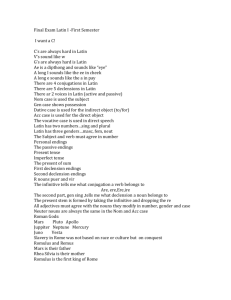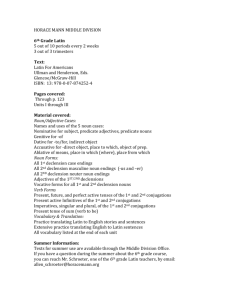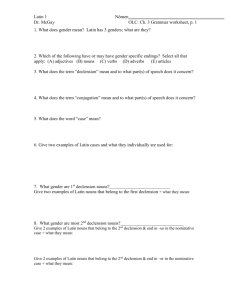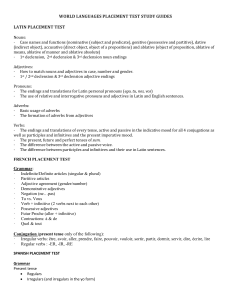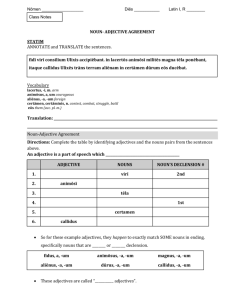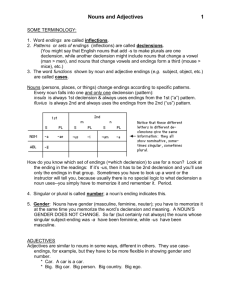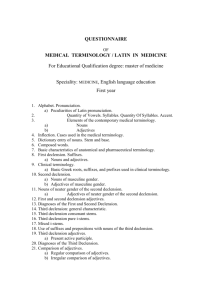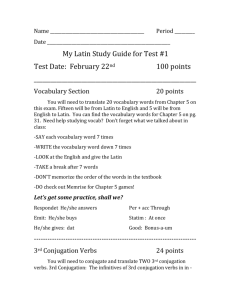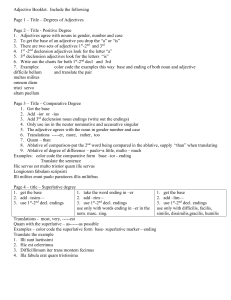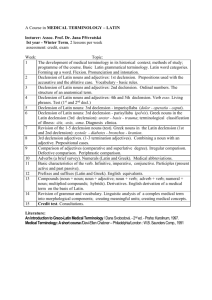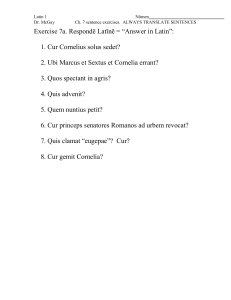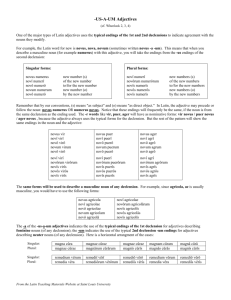Nouns and Adjectives Nouns and adjectives have internal
advertisement
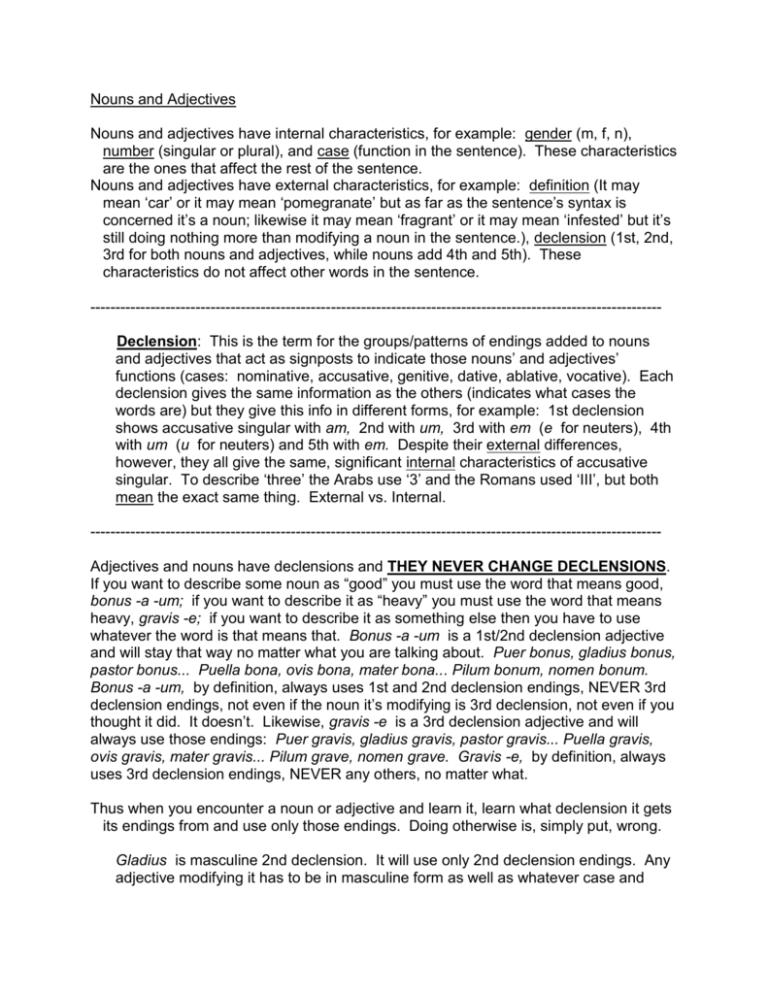
Nouns and Adjectives Nouns and adjectives have internal characteristics, for example: gender (m, f, n), number (singular or plural), and case (function in the sentence). These characteristics are the ones that affect the rest of the sentence. Nouns and adjectives have external characteristics, for example: definition (It may mean ‘car’ or it may mean ‘pomegranate’ but as far as the sentence’s syntax is concerned it’s a noun; likewise it may mean ‘fragrant’ or it may mean ‘infested’ but it’s still doing nothing more than modifying a noun in the sentence.), declension (1st, 2nd, 3rd for both nouns and adjectives, while nouns add 4th and 5th). These characteristics do not affect other words in the sentence. -----------------------------------------------------------------------------------------------------------------Declension: This is the term for the groups/patterns of endings added to nouns and adjectives that act as signposts to indicate those nouns’ and adjectives’ functions (cases: nominative, accusative, genitive, dative, ablative, vocative). Each declension gives the same information as the others (indicates what cases the words are) but they give this info in different forms, for example: 1st declension shows accusative singular with am, 2nd with um, 3rd with em (e for neuters), 4th with um (u for neuters) and 5th with em. Despite their external differences, however, they all give the same, significant internal characteristics of accusative singular. To describe ‘three’ the Arabs use ‘3’ and the Romans used ‘III’, but both mean the exact same thing. External vs. Internal. -----------------------------------------------------------------------------------------------------------------Adjectives and nouns have declensions and THEY NEVER CHANGE DECLENSIONS. If you want to describe some noun as “good” you must use the word that means good, bonus -a -um; if you want to describe it as “heavy” you must use the word that means heavy, gravis -e; if you want to describe it as something else then you have to use whatever the word is that means that. Bonus -a -um is a 1st/2nd declension adjective and will stay that way no matter what you are talking about. Puer bonus, gladius bonus, pastor bonus... Puella bona, ovis bona, mater bona... Pilum bonum, nomen bonum. Bonus -a -um, by definition, always uses 1st and 2nd declension endings, NEVER 3rd declension endings, not even if the noun it’s modifying is 3rd declension, not even if you thought it did. It doesn’t. Likewise, gravis -e is a 3rd declension adjective and will always use those endings: Puer gravis, gladius gravis, pastor gravis... Puella gravis, ovis gravis, mater gravis... Pilum grave, nomen grave. Gravis -e, by definition, always uses 3rd declension endings, NEVER any others, no matter what. Thus when you encounter a noun or adjective and learn it, learn what declension it gets its endings from and use only those endings. Doing otherwise is, simply put, wrong. Gladius is masculine 2nd declension. It will use only 2nd declension endings. Any adjective modifying it has to be in masculine form as well as whatever case and number gladius happens to be: gladiorum bonorum, gladiorum gravium (gen. pl.), gladiis bonis, gladiis gravibus (dat./abl. pl.), gladio bono, gladio gravi (dat./abl. sing.). Mare is neuter 3rd declension (radical i-stem). It will use only 3rd declension endings. Any adjective modifying it has to be in neuter form as well as whatever case and number mare happens to be: mare bonum, mare grave (nom./acc. sing.), maria bona, maria gravia (nom./acc. pl.), maribus bonis, maribus gravibus (dat./abl. pl.). This is not a topic open to discussion, debate, or alternative suggestions: it is a fact and not open to interpretation. Accept it and learn it; don’t learn something else; don’t try to make something else work because it won’t be Latin. THIS is how Latin works. Stop thinking anything else and start thinking only this. Period.
